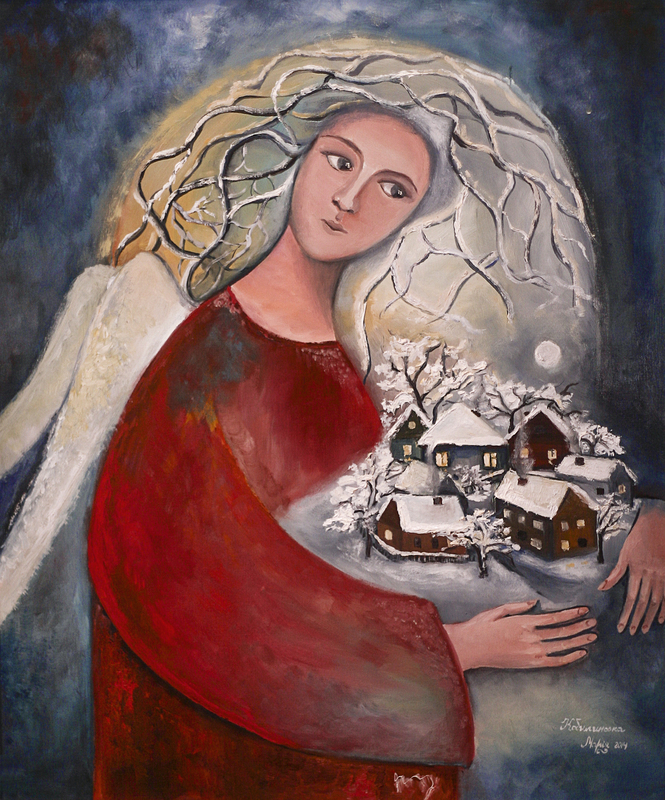The Chernobyl Museum in Kiev, Ukraine, has a maxim: There is a limit to sadness. There is no limit to trouble.
USA TODAY recently published a dozen stories about the Chernobyl nuclear disaster, which took place 30 years ago Tuesday.
The reporting trip that yielded these stories produced its own version of this maxim: There is a limit to the number of questions you can ask about the world's worst nuclear disaster. There is no limit to the variety of answers you will receive.
The abbreviated version of what I learned on my trip to Ukraine and Belarus is this:
Three decades on, there are many sick people, particularly children, living on contaminated lands; Ukrainians care — or don't; the government in Kiev would probably do more to help if it had any money; in Belarus, the testimony of ordinary people is extremely worrying, people there may be unwell in vast numbers, but risk economic penury or even jail for saying so; most scientists and doctors outside these countries say the radiation may all be in the victims' imaginations; most scientists and doctors inside these countries say that's simply not true, the science is just not sophisticated enough to accurately explain the problem; in Ukraine's case, 453,391 under-age problems.
There is no limit. Where does that leave us?
• With Alexander Bondar, 65, the nature-loving head of security at the Polesie State Radioecological Reserve — Belarus' Exclusion Zone — a restricted area just a few miles from the Chernobyl power plant. Bondar has spent the last three decades watching over a tainted, sprawling patch of primeval forest that he clearly holds dear.
"You see, no one is living here anymore but the birds are still singing for us," he says. "This area is not dead." As Bondar spoke, a half dozen European bison, heads down, calmly sauntered past in the undergrowth as if to reinforce his point.
"I once had some guys visit here from St. Petersburg (Russia) who showed up in flip flops. We wrapped their feet in plastic bags."
Because of radiation?
"No, because of ticks. There are a lot of ticks here."
Are the ticks radioactive?
"I don't know. Oh look, a wounded caterpillar. It's OK, it will survive and become a butterfly."
• With Fedor Alexandrovich, 34, a Kiev-based artist who stars in "Russian Woodpecker," a documentary with a novel explanation for Chernobyl.
"For me, it was a big shock to discover that Chernobyl was a criminal act, not an accident as is commonly thought," Alexandrovich says. "On the Internet you can find more than a hundred theories about why and how it happened. They are all incorrect. There are theories, for example, that the CIA blew it up. Not true."
He believes the power plant was deliberately sabotaged at the request of a high-ranking Communist Party official in what was then the Soviet Union.
"Most people in Ukraine think of me, personally, as a crazy person, and so therefore think that my theory is crazy without examining it," Alexandrovich said.
"If I went to Moscow with my Ukrainian passport and started asking questions about Chernobyl, I'd probably get 20 years in prison. They could kill me, and that would be OK. Killed is OK. Killed is normal. But 20 years conversing with prison people, that is not for me.”
• With Sofia Kluchinskaya, 77.
Kluchinskaya lives in a village in Belarus with her husband, Nikolay, that's completely cut off from the surrounding area because of elevated radiation levels.
No one else lives in this village.
"I can tell you only one difficulty. For me, as a woman, it is boring to be here alone," she says. "When there were neighbors here, we helped each other to plant and to harvest potatoes. It is hard to do all of that when you are alone. Yes, I talk to people on the phone and some people come to visit, but it is lonely here.
"Everyone is saying to us all the time that we should leave. Where can we go at such an age? Besides, Nikolay doesn’t want even to listen to that. He says that he knows better."
• With a group of young doctors in Gomel, Belarus' second city, who say they knew, because they are medical professionals, to take certain precautions when spending time in contaminated areas, such as not consuming locally grown or made products. But most people didn't know this, and the government said it was OK.
• With Mariya Kobylynska, 21, a Ukrainian painter born not far from Chernobyl. “For me, Chernobyl was never a place of fear,” she says.
• With Kseniya Koretskaya, 29, for whom it was. Her daughter Valeriya, 10, has been battling a Chernobyl cancer for five years.
"It's all she knows," Koretskaya says.
There is no limit.
Hjelmgaard is a Berlin-based correspondent for USA TODAY.

![635964127714403299-Mariya-Kobylynska-3.jpg [image : 83123774]](http://www.gannett-cdn.com/-mm-/16c80e7a5c076c72381d2b419e99dfe50719a51e/c=0-82-664-650/local/-/media/2016/04/16/USATODAY/USATODAY/635964127714403299-Mariya-Kobylynska-3.jpg)

